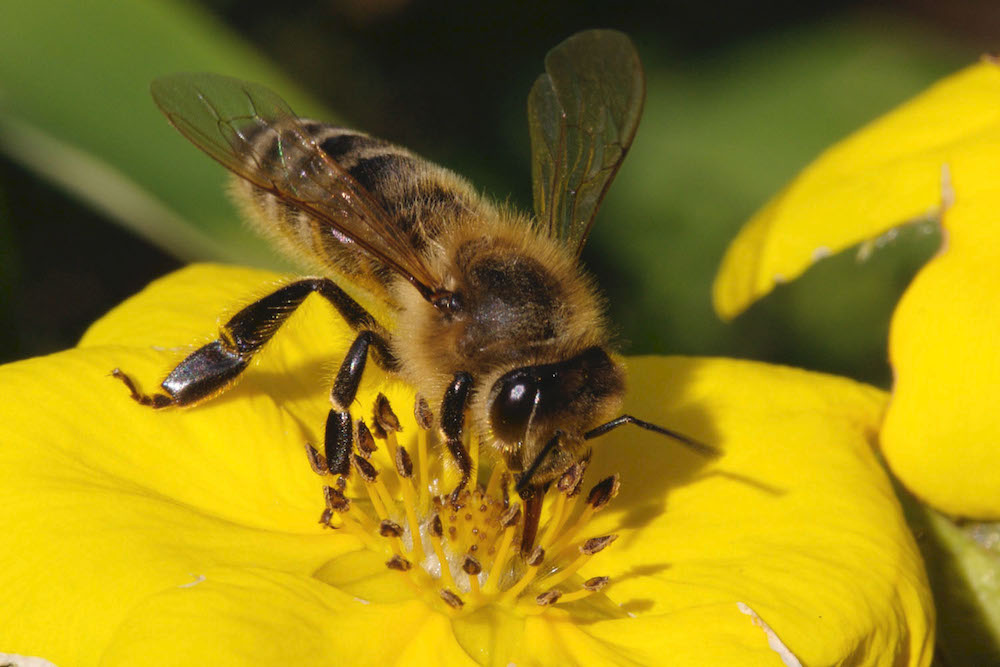Farmers and growers support Bees’ Needs Week 2020
13th July 2020
Championing the Farmed Environment and the Nature Friendly Farming Network (NFFN) have joined forces to promote and celebrate the work of farmers and growers in protecting pollinator populations.
Championing the Farmed Environment and the Nature Friendly Farming Network (NFFN) have joined forces to promote and celebrate the work of farmers and growers in protecting pollinator populations.
Bees’ Needs Week (July 13th-19th) is an annual event coordinated by Defra working alongside charities, businesses, farming and conservation groups and academic institutions to raise awareness of bees and other pollinators.
Bees and other pollinators play a crucial role in food production and agriculture – they contribute the equivalent of more than £500 million a year to UK agriculture and food production, by improving crop quality and quantity – and are also vital to our wider, natural ecosystems.
Laura Harpham, Project Officer, CFE, said: “It’s great to be working with CFE partners, including the NFU, as well the NFFN, their members and supporters. Together we can champion the fantastic work done on farms to provide habitat for bees and other pollinators, and highlighting guidance and resources to help more of the industry to get involved.”
Martin Lines, UK Chair, Nature Friendly Farming Network, said: “Pollinators play an important role in our ecosystem, but they also provide enormous benefits to the food system, farming businesses and people’s wellbeing. The NFFN is delighted to be involved with Bees’ Needs Week, to help people reconnect with sustainable farming and nature. By working together, we can bring wildlife back.”
Using #BeesNeeds, @CFEonline and @NFFNUK will be giving the farming perspective on the five simple actions everyone can take to help pollinators. Whether you are a farmer, a gardener, or a land manager, you can get involved:
- Grow more flowers, shrubs and trees
- Let your garden grow wild
- Cut your grass less often
- Don’t disturb insect nest and hibernation spots
- Think carefully about whether to use pesticides
The campaign will be encouraging as many people as possible to spend 10 minutes in the sun to count insects for the UK’s Pollinator Monitoring Scheme (PoMS).
Environment minister Rebecca Pow said:
“I am hugely grateful to Championing the Farmed Environment for its continued commitment to action for our pollinating insects. Pollinators play a crucial role in food production and agriculture, and are also vital to our ecosystem. They are our unpaid army of friends.
“During this unprecedented time, many of us have connected with nature more than ever before, I would urge everyone who can, to do simple things – like growing more flowers, growing them for a long a season as possible, and cutting grass less often (I’m doing this at home and the bees are loving the clover) – to ensure our precious pollinators thrive.”
Through the National Pollinator strategy, Defra is working with farmers, business and conservation organisations to provide pollinator habitat on farmland, in urban areas and in gardens.
Nature-friendly farming success stories:
- David Butler, a mixed farmer from Wiltshire, dedicated 8% of his crop area to wildlife habitats and recent insect surveys have shown positive increases in species numbers. Flowering crops, like spring beans, depend on pollinators for their success and by encouraging these species on the farm, yields and productivity have increased.
- Sally-Ann Spence, a mixed farmer from Oxfordshire, has a nectar margin, pollinator strips and 100 acres of grassland on her farm. These important habitats for pollinators have increased beneficial insects, which has meant that Sally has reduced chemical use. These insects also support other important wildlife species on the farm, such as farmland birds, and help the ecosystem on the farm to thrive.
- Stephen Honeywood, an arable farmer for Jordans Cereals from Suffolk, has dedicated 12% of his land to wildlife to attract pollinators and rare butterflies. His hedges are left to grow and he plants a wild seed mix which benefits pollinating insects including solitary bees, bumble bees, butterflies and hover flies.

